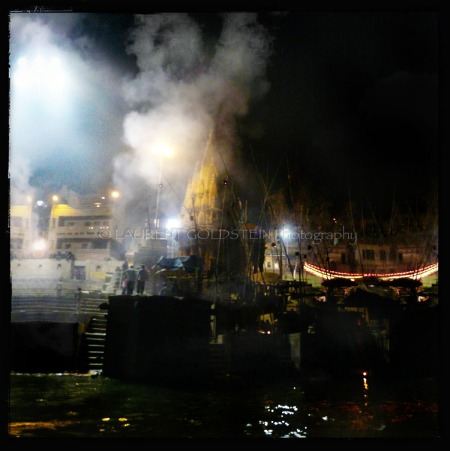
“ Abraham said:
“I will go to my Lord! He will surely guide me “O my Lord! Grant me a righteous son!” So We gave him the good news of a forbearing son. Then, when the son reached the age of serious work with him, Abraham said: “O my son! I have seen in a vision that I offer you in sacrifice: now see what your view is?” The son said: “O my father! Do as you are commanded: you will find me, if Allah so wills, one of the steadfast!”
So when they had both submitted Allah and Abraham had laid his son prostrate on his forehead for sacrifice, We called out to him “O Abraham! You have already fulfilled the dream!” – you are indeed Do We reward those who do right.”
(Qur’ân – verse 37:99 to verse 37:109)
Islam focuses on Abraham more than either Judaism or Christianity, but with an important difference: where Judaism holds that one becomes a descendant of Abraham through birth, and Christianity that one becomes a descendant through faith, Islam holds that descent is unimportant – Abraham, in other words, is not the father of the believing community, but a link in the chain of prophets that begins with Adam and culminates in Mohammad.
Islamic traditions consider Abraham the first Pioneer of Islam (which is also called millat Ibrahim, the “religion of Abraham”), and that his purpose and mission throughout his life was to proclaim the Oneness of God.
When Abraham was asked for sacrifice, he took Ishmael to sacrifice. When he was about to use the knife, God placed a sheep under his hand.
Abraham had shown that his love for Allah superseded all others: that he would lay down his own life or the lives of those dearest to him in submission to Allah’s command.
As a reward for this sacrifice, God then granted Abraham the good news of the birth of his second son, Is-haaq (Isaac).
Muslims around the world commemorate this ultimate act of sacrifice every year during Eid al-Adha, to follow the path of Abraham that is called Qurbani (sacrifice).
During this festival in Varanasi (Benaras), it is common for Muslims and non-Muslims to visit their Muslim friends and neighbours on Eid to convey their good wishes and share a meal or sweets.
This is a view shot from the upper terrace of the Bara Imambara in Lucknow built by Asaf-ud-Daula, the Nawab of the city, in 1784.
The two minars on the left belong to the Asfi Mosque and on the right stands the Rumi Darwaza known as the Turkish Gate.
This picture of the City of Nawabs, the capital of the Indian state of Uttar Pradesh, allows me to wish everyone a happy and peaceful Eid Mubarak.
“May Allah ease the suffering of all people around the world…”
Join the photographer at
https://www.facebook.com/laurent.goldstein.photography
© All photographs are copyrighted and all rights reserved.
Please do not use any photographs without permission (even for private use).
The use of any work without consent of the artist is PROHIBITED and will lead automatically to consequences.




























